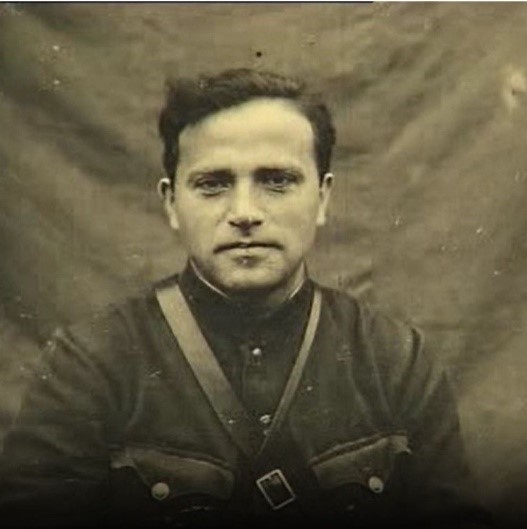The renowned Ukrainian Yiddish writer Aleksandr Lizen (1911-2000) was born in the village of Haidaiky, near Starokostiantyniv in Podolia, as Yisroel Lizenberg. His father Mekhl died of tuberculosis during World War I, in 1914 or 1915. Yisroel was the youngest of five brothers, and he also had two sisters. Two of his brothers died young; another two immigrated to Uruguay. Following the pogrom carried out in Proskuriv by Petliura's troops in 1919, the family moved to the town of Kupil. In 1923, Yisroel Lizenberg joined an underground cell of the leftist Zionist Hashomer Hatzayir youth movement in Kupil, and even became its leader. In 1928-29, the leadership of Hashomer Hatzayir ordered him to move to Moscow (or, rather, to one of its suburbs) and join the clandestine political center of the movement. There, he was arrested by the Soviet political police (OGPU), and went on to spend three years in a political prison in the Urals, followed by deportation to the sub-Arctic region of Siberia. In 1937, Lizenberg returned to Ukraine and settled in Kiev. He worked as a bookkeeper, a profession he had acquired in Kupil.
On June 22, 1941, the Soviet-German War broke out, and on the same day Lizenberg showed up at a recruitment office and volunteered to enlist in the Red Army. Since he had had no prior military training, he was assigned to the 7th Separate Reserve Regiment to be trained. Shortly thereafter, Lizenberg was attached to a reconnaissance battalion of the 145th Artillery Brigade, with which he would serve until his demobilization. In the 145th Artillery Brigade, Lizenberg was retrained as a quartermaster, and went on to serve in this capacity until the end of the war. He saw action in the areas of Briansk and Voronezh (in western and southwestern Russia), and in Ukraine, Romania, and Germany. He met V-E Day in Czechoslovakia. In the course of the war, he was awarded the medal "For Battle Merit"; his highest rank was that of sergeant major (starshina).
Lizenberg's mother and sisters were killed in German-occupied Kiev.
After V-E Day, Lizenberg's brigade was transferred to Western Ukraine. Aleksandr Lizenberg was discharged from the army in Przemyślany (present-day Peremyshlyany, Ukraine). He then settled in Lvov.
Yisroel (Aleksandr) Lizenberg began to compose poetry in his youth. He wrote in Yiddish, Hebrew, and Russian. None of his poems were published. Lizenberg debuted after the war as a writer of short stories, which were published in Ukrainian under the pseudonym "Aleksandr Lizen." From 1970, Aleksandr Lizen also published short stories and novels in Yiddish – first in the Moscow literary magazine Sovetish Heymland, and then as separate books. In parallel, he continued writing in Ukrainian. In 1988, Lizenberg became chairman of the Sholom Aleichem Society for Jewish Culture in Lvov – the first society of this kind in Ukraine. In the 1990s, after a lengthy hiatus, he published several collections of poems in Yiddish. Aleksandr Lizenberg died in 2000 in Lvov.







